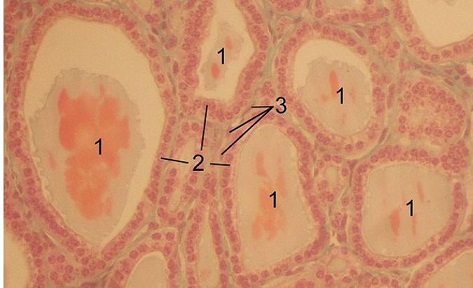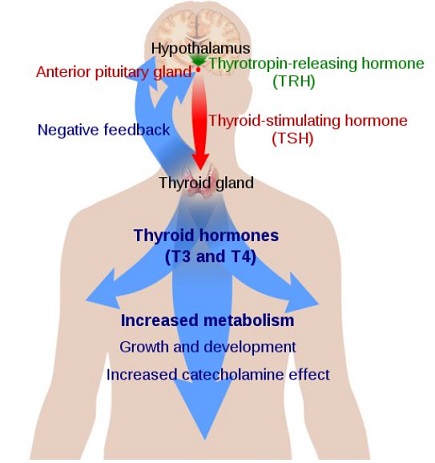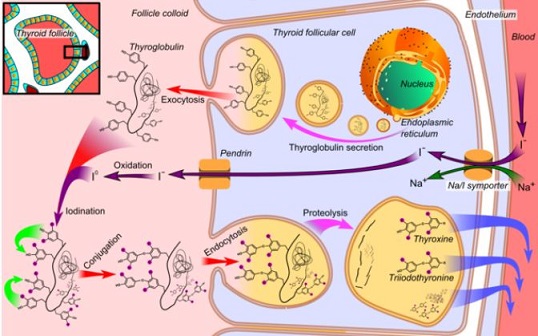|
|
Medical Pharmacology Chapter 30: Thyroid and Antithyroid Drugs
|
Thyroid Physiology and Pharmacology
Thyroid -- Exocrine gland
|
|
|
 |
|
 |
|
![]() Two hormones types
released
Two hormones types
released
Thyroxine and triiodothyronine
 |
|
Calcitonin
Thyroxine and triiodothyronine are important in:
Growth
Development
Maintaining normal body temperature
Energy metabolism regulation
Thyrotropin (TSH, a pituitary hormone) modulates thyroid function by binding to TSH receptors (TSH-R)
TSH-R: localization and properties:
Basolateral membrane of thyroid follicular cells.
Iodide intake: gastrointestinal tract absorption from food, water, or medication.
Iodide:
Rapid absorption
Enters extracellular pool
Thyroid removes amount required for hormone secretion
Excess iodide: urinary excretion
Non-Physiological Thyroid Simulation
Graves' disease
Greenspan, F.S., and Dong, B. J.. Histamine, Thyroid and Antithyroid Drugs, in Basic and Clinical Pharmacology, (Katzung, B. G., ed) Appleton-Lange, 1998, pp 619-633.
Wartofsky, L., Diseases of the Thyroid, In Harrison's Principles of Internal Medicine 14th edition, (Isselbacher, K.J., Braunwald, E., Wilson, J.D., Martin, J.B., Fauci, A.S. and Kasper, D.L., eds) McGraw-Hill, Inc (Health Professions Division), 1998, pp 2012-2034